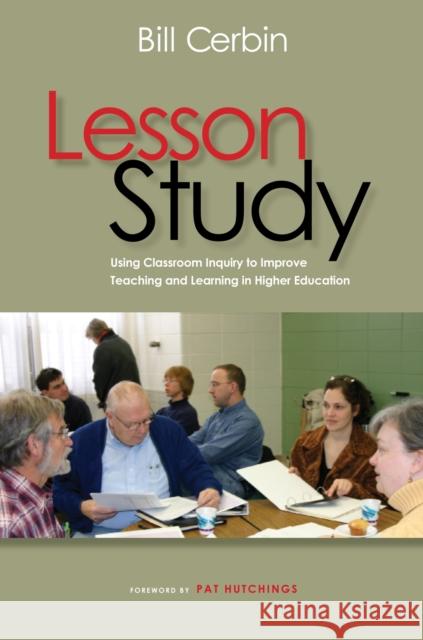Lesson Study: Using Classroom Inquiry to Improve Teaching and Learning in Higher Education » książka
Lesson Study: Using Classroom Inquiry to Improve Teaching and Learning in Higher Education
ISBN-13: 9781579224325 / Angielski / Twarda / 2011 / 176 str.
Lesson Study: Using Classroom Inquiry to Improve Teaching and Learning in Higher Education
ISBN-13: 9781579224325 / Angielski / Twarda / 2011 / 176 str.
(netto: 674,98 VAT: 5%)
Najniższa cena z 30 dni: 654,86
ok. 22 dni roboczych.
Darmowa dostawa!
Why do students stumble over certain concepts and ideas--such as attributing causality to correlation; revert to former misconceptions, even after successfully completing a course--such as physics students continuing to believe an object tossed straight into the air continues to have a force propelling it upward; or get confused about terminology--such as conflating negative reinforcement with punishment?
This is the first book about lesson study for higher education. Based on the idea that the best setting in which to examine teaching is where it takes place on a daily basis--the lecture hall, seminar room, studio, lab, and the online classroom management system - lesson study involves several instructors jointly designing, teaching, studying, and refining an individual class lesson in order to explore student learning problems, observe how students learn, and analyze how their instruction affects student learning and thinking. The primary purpose is to help teachers better understand how to support student learning and thinking. By observing how students learn through lesson study teachers can improve their own teaching and build knowledge that can be used by other teachers to improve their practice.
Lesson study grew out of the collective efforts of classroom teachers in Asia--most notably in Japan--to improve their teaching. Subsequently imported, tested, and implemented by a group of instructors of biology, economics, English, and psychology at the University of Wisconsin-La Crosse, the process proved so valuable that the university has since established the College Lesson Study Project, of which the author of this book is Director.
Focusing on a single lesson enables participants to examine in detail every step of the teaching process, from vision and goals, to instructional design, to implementation, to observation and analysis of student performance, and then evidence-based improvement. It enables faculty to explore learning problems that matter most to them, learn alternative ways to teach from one another, and co-design new course materials.
This book introduces lesson study practices to college teachers, providing the necessary guidance, tools, examples, models, and ideas to enable teachers to undertake lesson study in their own classes. It also explores the underlying rationale for lesson study practices and how to realize the full potential of lesson study to advance teaching and learning.
A Joint Publication with the National Teaching and Learning Forum
An ACPA / NASPA Joint Publication











